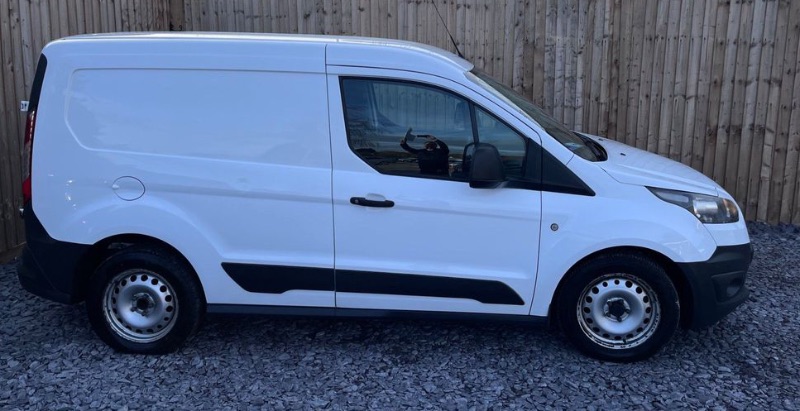Are you the proud owner of a Ford Transit and want to ensure your vehicle‘s clutch system is in optimal condition? If so, understanding the clutch system, being aware of common signs and causes of clutch problems, as well as knowing when to seek professional help and how to perform preventive maintenance is essential.
In this blog post, we‘ll explore the clutch system of a Ford Transit, the common signs of problems, the causes of clutch issues, preventive maintenance tips, and where to find reliable mechanics for clutch repairs. Read on to learn more about how to keep your Ford Transit‘s clutch system running smoothly!
Understanding the Clutch System of a Ford Transit
The clutch system is an essential component of any vehicle, including the Ford Transit. It allows for smooth gear shifting and helps to transmit power from the engine to the wheels. However, over time, the clutch system can develop problems that may affect its performance. Some common signs of Ford Transit clutch problems include difficulty in engaging gears or a slipping clutch.

Causes of Ford Transit clutch issues can vary from normal wear and tear to improper use or poor maintenance. For instance, a worn-out friction plate or pressure plate can cause slippage while driving. Additionally, using incorrect lubricants or not replacing them at recommended intervals can lead to premature wear on parts such as bearings and bushings.
Manual vs automatic transmission also affects how likely it is for your Ford Transit’s clutch system will experience problems. Manual clutches are more prone to wear since they require manual engagement every time you shift gears; whereas automatic transmissions have torque converters which transfer power without needing constant attention from drivers. Regardless of whether you have a manual or automatic transmission in your Ford Transit van though, proper care and maintenance are crucial for avoiding costly repairs down the road related to your vehicle’s clutch system.
Common Signs of Clutch Problems in a Ford Transit
One of the most common signs of Ford Transit van clutch problems is difficulty shifting gears. You may notice that it takes more effort to shift into gear, or you may hear grinding noises when trying to do so. This can be caused by a worn clutch plate or pressure plate, which will need to be replaced.
Another sign of clutch issues in your Ford Transit van is slipping. This occurs when the engine revs but the vehicle doesn’t accelerate as it should. A worn clutch disc or pressure plate can cause this problem, and if not addressed promptly, it can lead to further damage to other parts of the transmission.
If you experience vibrations while driving your Ford Transit van, especially when accelerating from a stop or changing gears, this could also indicate clutch problems. Worn out components such as the flywheel or pilot bearing can cause these vibrations and will require replacement. It’s important not to ignore any signs of clutch problems in your vehicle as they can worsen over time and lead to costly repairs down the line.
Causes of Clutch Issues in a Ford Transit
One of the main causes of clutch issues in a Ford Transit Custom is wear and tear. Over time, the friction material on the clutch plate can become worn down, making it harder for the clutch to engage properly. This can cause slipping or juddering when changing gears, as well as difficulty getting into gear altogether.
Another common cause of Ford Transit Custom clutch problems is oil contamination. If there is a leak in the engine or gearbox that allows oil to seep onto the clutch plate, it can reduce its grip and cause slipping. This can also lead to premature wear and damage to other components of the clutch system.
Finally, improper use of the clutch can also contribute to issues with this system in a Ford Transit Custom. Riding the clutch (keeping your foot on it while driving) or using it excessively during stop-and-go traffic can put extra strain on this component and cause premature wear and tear. It’s important for drivers to use their clutches correctly and avoid unnecessary stress on these parts if they want them to last as long as possible without requiring repairs or replacement.
Manual vs Automatic Transmission Clutch Problems in a Ford Transit
When it comes to clutch problems in a Ford Transit, there are some differences between manual and automatic transmissions. With a manual transmission, the clutch is operated by the driver, while an automatic transmission uses a hydraulic system to engage and disengage the clutch. This means that with an automatic transmission, you may experience different types of issues related to the hydraulic system.

One common problem with Ford Transit hydraulic clutch systems is leaks. Leaks can occur in both manual and automatic transmissions but are more likely to happen in an automated system due to its complexity. If you notice fluid leaking from your vehicle or difficulty shifting gears, it could be a sign of a leaky hydraulic system.
Another issue unique to automated clutches is slipping. Slipping occurs when the clutch fails to fully engage or disengage, causing the engine speed and vehicle speed to become out of sync. This can cause jerking movements while driving or make it difficult for your vehicle to accelerate smoothly. If you’re experiencing these symptoms with your Ford Transit’s automated transmission, it’s essential that you have it checked by a professional mechanic as soon as possible.
In summary, while both manual and automatic transmissions can experience problems with their clutches on Ford Transits, there are some differences between them based on how they operate. Keep an eye out for signs of leaks or slipping if you suspect something might be wrong with your vehicle’s hydraulic clutch system- whether manually operated or not- so that any necessary repairs can be made before they turn into bigger issues down the line!
How to Diagnose Clutch Problems in a Ford Transit
When diagnosing clutch problems in a Ford Transit, the first thing to check is the pedal. If it feels softer than usual or if there is resistance when pressing down on it, this could indicate an issue with the hydraulic system. Check for any leaks or low fluid levels in both the master and slave cylinders.
Another sign of clutch problems in a Ford Transit is difficulty shifting gears. If you notice that it’s hard to get into gear or there’s grinding or slipping when shifting, this may be due to worn out friction plates. You should also listen for any unusual noises such as rattling or squeaking while driving as these can be signs of other issues like damaged bearings.
If you’re experiencing clutch problems in your Ford Transit, it’s important to diagnose and address them promptly before they lead to more serious damage. By checking the pedal feel, inspecting for leaks and low fluid levels, looking out for difficulty shifting gears and listening for unusual noises while driving, you can identify potential issues early on and take appropriate action to keep your vehicle running smoothly.
Replacing the Clutch in a Ford Transit: DIY vs Professional Service
Replacing the clutch in a Ford Transit can be a daunting task for those who are not familiar with automotive repairs. However, it is possible to do it yourself if you have experience working on vehicles and access to the necessary tools. DIY clutch replacement can save you money on labor costs, but it also requires time and effort.

On the other hand, professional service may cost more upfront, but it guarantees that your vehicle will be repaired correctly and efficiently. A certified mechanic has the expertise and equipment needed to diagnose any additional issues that may arise during the repair process. Additionally, many mechanics offer warranties on their workmanship.
When deciding whether to tackle clutch replacement as a DIY project or seek professional help, consider your level of experience with auto repairs and how much time you have available. If you are confident in your abilities and have ample free time, doing it yourself could be an option. However, if you lack experience or need your vehicle back on the road quickly without any further complications arising from improper installation or diagnosis of underlying problems then seeking out professional assistance might be best for this particular job at hand.
Cost of Repairing a Clutch in a Ford Transit
The cost of repairing a clutch in a Ford Transit can vary depending on several factors. The most significant factor is whether you opt for DIY repairs or professional service. If you choose to replace the clutch yourself, the cost will be significantly lower than if you take it to a mechanic.
However, keep in mind that replacing the clutch requires specialized tools and expertise, so unless you have experience working with transmissions and clutches, it’s best to leave this job to professionals. On average, the cost of replacing a clutch in a Ford Transit at a repair shop ranges from $800-$1200.
Another factor that can affect the cost is whether your vehicle has manual or automatic transmission. Manual transmissions generally require more frequent clutch replacements compared to automatics due to their design. Therefore, if your Ford Transit has a manual transmission, expect higher costs for clutch replacement over time compared to an automatic model.
In summary, when it comes to repairing the clutch system of your Ford Transit van, opting for professional service may increase expenses but also ensures quality workmanship and timely completion of repairs. It’s important not only for safety but also prolonging the lifespan of your vehicle’s transmission system by addressing any issues promptly before they escalate into major problems.
Preventive Maintenance Tips for the Clutch System of a Ford Transit
Regular maintenance is crucial for keeping the clutch system of a Ford Transit in good condition. One important step is to check the fluid level regularly and top up if necessary. Low fluid levels can cause excessive wear on the clutch components, leading to problems such as slipping or difficulty shifting gears.
Another preventive measure is to avoid riding the clutch pedal while driving. This means not holding down the pedal partially when driving, which can cause unnecessary friction and heat buildup in the clutch system. It’s also important to use proper driving techniques, such as smoothly shifting gears and avoiding sudden acceleration or deceleration.
Finally, it’s recommended to have a professional mechanic inspect the clutch system periodically, especially if you notice any signs of trouble. They can check for wear on components such as the pressure plate and release bearing and make any necessary adjustments or replacements before more serious damage occurs. By following these tips, you can help ensure that your Ford Transit’s clutch system stays in optimal condition for longer periods of time without requiring major repairs.
Finding a Reliable Mechanic for Ford Transit Clutch Repairs
When it comes to finding a reliable mechanic for Ford Transit clutch repairs, there are a few things you should consider. First and foremost, look for a mechanic who specializes in working on Ford Transits or has experience with similar vehicles. This will ensure that they have the knowledge and expertise necessary to properly diagnose and repair any clutch issues your vehicle may be experiencing.
Another important factor to consider is the reputation of the mechanic or repair shop you choose. Look for reviews online or ask friends and family members if they have any recommendations. A reputable mechanic will be transparent about their pricing, provide clear explanations of the work that needs to be done, and offer warranties on parts and labor.
Finally, don’t be afraid to ask questions before committing to a particular mechanic or repair shop. Ask about their qualifications, experience working on Ford Transits specifically, and what kind of warranty they offer on their work. By doing your research ahead of time and asking thoughtful questions, you can feel confident that you’re entrusting your vehicle’s clutch system to someone who knows what they’re doing.
Frequently Asked Questions
What is the clutch system of a Ford Transit?
The clutch system is responsible for disengaging and engaging the power transmission between the engine and the wheels, allowing for smooth gear changes and control over speed.
What are the common signs of clutch problems in a Ford Transit?
Common signs include difficulty shifting gears, slipping gears, burning smells, strange noises, and a spongy or stiff clutch pedal.
What are the causes of clutch issues in a Ford Transit?
Causes can include wear and tear, low fluid levels, a damaged or worn clutch plate, a faulty release bearing, or a malfunctioning hydraulic system.
Are manual and automatic transmission clutch problems the same in a Ford Transit?
No, the clutch system in a manual transmission is different from that of an automatic transmission, and the issues and repairs may vary.
How can I diagnose clutch problems in my Ford Transit?
You can diagnose clutch problems by checking the fluid levels, inspecting the clutch pedal and linkage, listening for strange noises, and examining the clutch plate and release bearing.
Should I try to replace the clutch in my Ford Transit myself or seek professional service?
It is recommended to seek professional service for clutch replacements, as it can be a complex and time-consuming process that requires specialized tools and expertise.
How much does it cost to repair a clutch in a Ford Transit?
The cost can vary depending on the extent of the damage and the cost of parts and labor, but it can range from $500 to $1500 or more.
What are some preventive maintenance tips for the clutch system of a Ford Transit?
Tips include regularly checking and topping up fluid levels, avoiding riding the clutch, not overloading the vehicle, and keeping the clutch pedal and linkage clean and lubricated.
How can I find a reliable mechanic for Ford Transit clutch repairs?
You can ask for recommendations from friends or family, check online reviews and ratings, and look for certified or experienced mechanics who specialize in Ford Transit repairs.